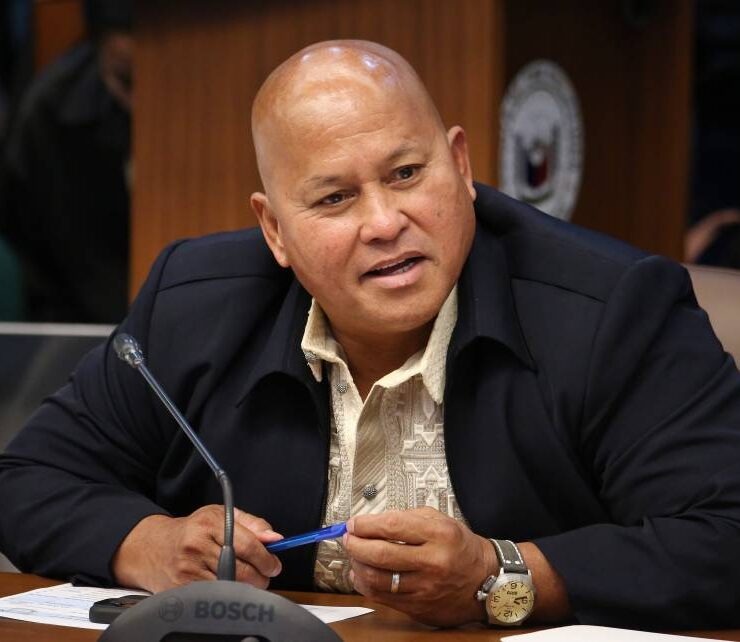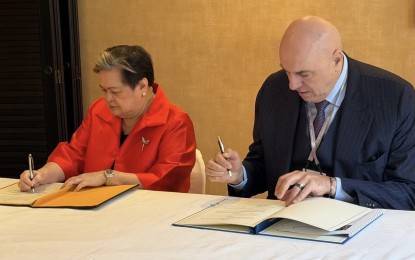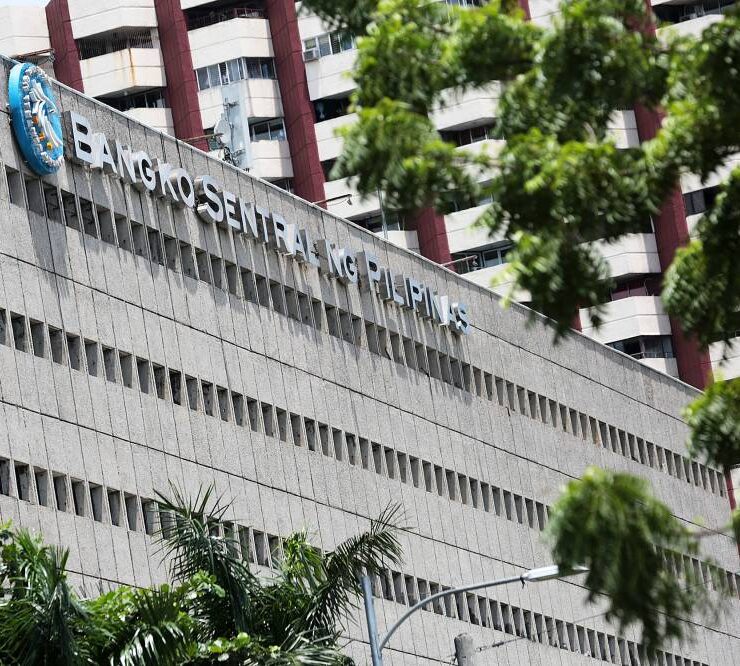Senators probe Tarlac Pogo for ‘spy ops’; mayor grilled
The raided Philippine offshore gaming operator (Pogo) compound in Tarlac province in March housed “mercenaries” suspected of spying and hacking government websites, an alarming information that should warrant the closure of such online gambling business in the country, two senators said on Tuesday.
Presiding over a Senate hearing, Sen. Risa Hontiveros said she received intelligence reports that the Pogo hub in Bamban town was not only linked to internet fraud, but also to surveillance activities and cyberattacks targeting different state agencies.
Authorities had raided the 7.9-hectare property, owned by Baofu Land Development Inc., on March 13 after a Vietnamese worker escaped from a Pogo leasing one of the buildings inside the compound. More than 800 workers were rescued during the raid, almost 500 of them foreigners. Of the foreign workers held during the operation, 427 were Chinese.
“I was very disturbed to hear that there is persuasive information from the intelligence community stating that this Bamban complex was being used for surveillance activities,” Hontiveros said.
‘More sinister end game?
“Are Pogos now being used to spy on us? Are we being fried in our own oil?” she asked.
According to the senator, the recent incidents of government websites being defaced by unknown hackers were also “traceable” to the complex, located just behind the municipal building in Anupul village.
“Is there a larger and more sinister end game besides Pogos and scams?” she noted.
“It does not abate my worries that separate sources in the intelligence community and various executive agencies are sounding the alarm about large tracts of land around Edca sites being purchased by Chinese nationals with Filipino identity documents,” she said.
Hontiveros was referring to areas that American forces may access under the Philippines’ Enhanced Defense Cooperation Agreement (Edca) with the United States.
Some unscrupulous Chinese nationals, she said, were able to purchase the properties by fraudulently assuming Filipino identities through the late registration of birth.
“And if these Pogos provide cover for scams and human trafficking, engender corruption in the pubic service and threaten our national security, I think it’s very clear what direction we should take,” Hontiveros said.
President Marcos, she added, should also take notice of the information they had uncovered during the series of Senate hearings on Pogos.
“I would like to take this opportunity to call on the President that if we really want to fight crimes and the threats to our national security, he will be well-advised to ban Pogos now,” Hontiveros said.
Surveillance, hacking
Sen. Sherwin Gatchalian shared Hontiveros’ concerns as he assailed anew the Philippine Amusement and Gaming Corp. for its continued failure to prevent crimes being committed by licensed Pogos.
He said he received similar information that some of the establishments inside the Baofu compound were tied to online surveillance and hacking.
Gatchalian declined to provide other information, saying the matter was actually discussed during an executive session with intelligence and law enforcement agencies.
“Some technology and personalities who had entered the country were being used in cyberattacks against the Philippine government,” Gatchalian told reporters after the four-hour hearing.
“They are apparently moving from scamming to cyberattacks in our own country. So we should really look at that angle,” he said. “That’s why I don’t see any benefit of having Pogos because all kinds of crimes are linked to it.”
Asked if there was a reason to suspect that China was behind the hacking, Gatchalian said there was no evidence showing that the cyberattacks were “state-sponsored.”
“But they could be contractors and private mercenaries who work as agents of any country,” he said.
Company name changed
The senators took turns in grilling Bamban Mayor Alice Guo, who had facilitated the application for local permits of Hongsheng Gaming Technology Inc., a Pogo that was raided in February 2023.
The company allegedly continued operating after changing its business name to Zun Yuan Technology Inc., the subject of the March 13 operation of the Presidential Anti-Organized Crime Commission.
Citing official documents, Gatchalian said Guo, then a private citizen, had represented Hongsheng in seeking the town council’s permission to operate in Bamban.
Guo ran and won the 2022 mayoral race in Bamban as an independent candidate.
According to Gatchalian, Baofu’s electric meter was registered under the mayor’s name and that she owned one of the luxury vehicles seized from the compound.
‘Not a coddler of Pogos’
Despite the documentary evidence, the mayor repeatedly denied allegations that she was involved in the operations of Hongsheng and Zun Yuan.
Guo told the senators that she actually owned 50 percent of Baofu, which had leased its property to Hongsheng.
Officials of Hongsheng, she claimed, only sought her assistance to secure a “letter of no objection” from the municipal council.
“It is sad that I have been judged prematurely. I was tried publicly based on baseless allegations and made-up stories,” Guo read from a prepared statement.
“I’m not connected with nor a protector or coddler of Pogos. I have no knowledge about their operations,” she said.
Guo, however, gave vague answers to several questions regarding her relationship with certain individuals connected with Pogos, two of whom shared her middle name and surname.
“(Guo’s) responses were really not believable. She’s hiding something. She’s not telling the truth, including details about her personal background,” Gatchalian said.
The “inconsistencies” in the mayor’s testimony would only “lead to more speculations,” the senator said.
Tied to sea row
At the House of Representatives, Davao Oriental Rep. Cheeno Almario, House committee vice chair for information and communications technology, said that while they had confirmed that some of the attacks had been traced to “Chinese actors,” it was difficult to link these with Manila’s maritime conflict with Beijing.
“Let us not discount that there are also some attacks that came from other areas,” Almario told reporters on Tuesday. “Some of the attempts are terroristic in nature. Some of the attempts are also not mainly just to extort money or to show the people that there is a vulnerability in the system.”
Last week, the same panel led a hearing that revealed over 30,000 “vulnerabilities” in at least 2,002 state-owned digital assets—files, photos, videos, databases, among others. The agency said that as of April, it was able to preempt over 800 attempts to hack government agencies. — INQ




















